‘The Blue Caftan’ celebrates love in all its colors
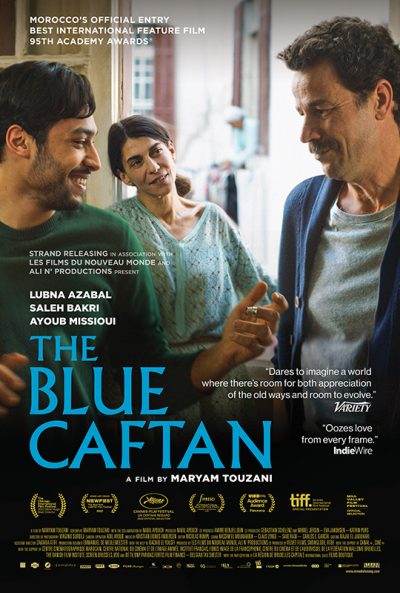
“The Blue Caftan” (“Le bleu du caftan”) (2022). Cast: Lubna Azabal, Saleh Bakri, Ayoub Missioui, Abdelhamid Zoughi, Zakaria Atifi. Director: Maryam Touzani. Screenplay: Maryam Touzani and Nabil Ayouch. Web site. Trailer.
To keep from falling further behind and risking the viability and reputation of the business, Halim hires a handsome young apprentice, Youssef (Ayoub Missioui), to help out. The gifted tailor is well versed in the classic sartorial arts, skills that are rapidly vanishing among those in his age group, making him something of a rare find. He quickly takes to the work Halim assigns him, producing noteworthy results. Halim is quite impressed with Youssef’s output, too, but his interest in his young charge soon takes on more than a professional dimension; the attraction quietly becomes personal as well, and Youssef does nothing demonstrable to distance himself from his boss nor to discourage Halim’s subtly simmering feelings from surfacing.
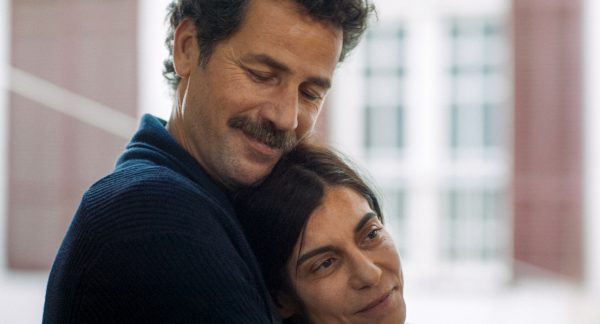
As the relationship between Halim and Youssef begins to deepen, Mina looks on in restrained irritation. She sees what’s going on between the two men, and she’s not happy about it. Mina has long known about Halim’s wandering eye, especially when it comes to his sidelong glances at other men. She’s also aware of her husband’s clandestine visits to local bath houses for discreet, anonymous encounters with other men, so none of this comes as much of a surprise, even if she never broaches the subject with him.
This time, however, things are different. Halim’s fascination with Youssef seems more serious than his other previous dalliances, which leaves Mina feeling threatened about the future of their marriage. It doesn’t help that her health is worsening, too; the potential heartache of what might transpire depletes her energy at a time when she could use all the help she can get to feel better. And, because of all this, she takes out her frustration on Youssef, blaming him for the slightest of errors in the shop, even if he isn’t at fault for what happened. The situation grows increasingly intense as the various strands of this story begin to unravel.
As all of this plays out, Halim and Youssef spend considerable time working on a customer order for a gorgeous blue caftan with elaborate gold embroidery. The garment – one of the most beautiful creations to come out of the shop in years – requires much of their time and attention, and it often seems like it’s never going to be finished, partly because of the intricacies of the design and partly because of the growing demands being placed on Halim to care for Mina and to run the business on his own. But that’s also where the part Youssef plays begins to take on greater importance.
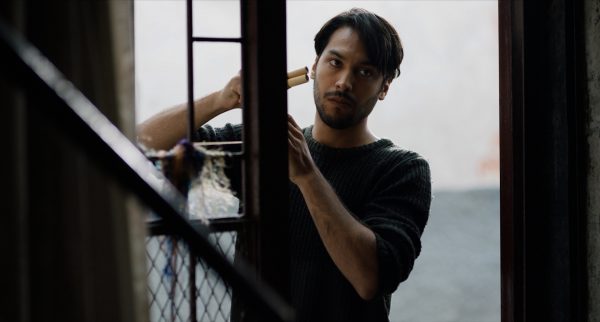
As Mina’s condition worsens, she begins to see that Halim is not going to leave her; instead, she comes to realize that she’s the one who’s likely to be leaving him, and that leads to a change of heart on her part. She sees that there’s something between Halim and Youssef, and she wants someone to be there for her husband when her time is up. It also helps that she sees the kind of support that Youssef offers to him – and to her – as her health continues to slide. The love that emerges among the three of them is something to see, with everyone providing the much-needed comfort that they each require during these trying times. That kind of care is essential to get through this ordeal. And it just might provide the necessary impetus to help Halim and Youssef complete that blue caftan order on time, a garment as beautiful as the wellspring of love that blossoms among this unlikely trio.
That’s what can happen when we employ the conscious creation process, the philosophy that maintains we manifest the reality we experience through the power of our thoughts, beliefs and intents. Many of us, like the characters in this film, may not have heard of this school of thought, but that doesn’t mean the realization of its principles is outside the realm of feasibility if we concertedly put our minds to it. And, even if Halim, Mina and Youssef aren’t consciously aware that they are doing so, it’s entirely possible that they’re nevertheless employing these concepts to make the best of their circumstances.
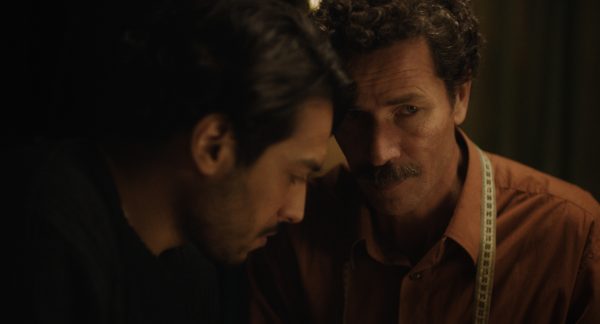
For example, as much as Mina may initially be unhappy with her husband’s sexual leanings, she has the choice of remaining in bitter denial of his nature, stewing in unexpressed anger or moving in the direction of devising solutions that work to everyone’s benefit, including her. The question is, can she believe in a resolution that’s amicable to all involved? That’s important at a time when someone like Mina is going through the kinds of personal challenges she’s experiencing. To begin with, she needs assistance with her continued care as her health weakens. But, just as importantly, she comes to understand the difficulties that Halim is going through at a time like this, and, even though not all aspects of their relationship may have worked out as she would have hoped for, there’s still an obvious love between them, something that will definitely be affected if her decline continues. What’s more, she recognizes the obvious need for Halim to have someone there for him – like Youssef – to help him carry on when that time comes.
Those are undoubtedly difficult realizations to accept, let alone to address. But does that automatically mean we should ignore them, blindly hoping that things will somehow work themselves out? If we truly care about the well-being of ourselves and those we love, shouldn’t we take steps to see that those needs are adequately addressed? We must first believe that those possibilities are attainable, of course, but, if we can envision their manifestation, we’re on our way to seeing them come into being, an outcome that’s certainly preferable to the alternative.
Situations like this also force us to get real with ourselves, to accept our true selves for what they are, to abandon the denial we’ve been embracing for so long that has kept us from achieving true happiness. That’s very much the case where Halim is concerned. He’s well aware of where his desires lie, but he’s allowed himself to be trapped by beliefs that prevent him from openly acting on them, leading him to clandestinely sneaking about for fleeting moments of fulfillment instead of willingly embracing what he truly wants. How much genuine satisfaction can be achieved from such a course of conduct over time?
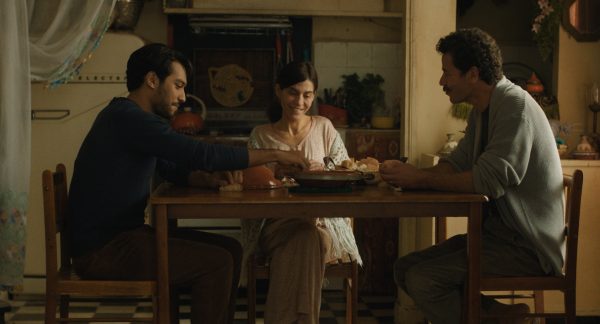
If he really wants something better for himself, he must first believe in the possibility to bring it into being. But, if he’s to do that, he must then ask himself why he hasn’t done so up to this point. Perhaps it’s out of fear, such as what others might think about him if he defies long-established cultural expectations about relationships and marriage. Perhaps it’s out of shame and the exposure of his true self, a nature that goes against traditional norms. Or perhaps it’s trepidation out of finally getting exactly what he wants and whether he’s ready for that. No matter what the cause (or causes), he has to examine them, understand the beliefs driving them and figure out how to rewrite them so that he can attain what he innately wants.
It should go without saying that making decisions like this is difficult at a time where there’s so much else on his plate. However, at the same time, windows of opportunity are making their presence known, providing openings for addressing the most immediately pressing matters at hand, as well as clearing a path to the future. Some may view such an assessment as somewhat cold and unfeeling, and their contentions admittedly have some merit. At the same time, though, it’s also an eminently practical way of looking at things when hard choices are seemingly all we’ve got. In light of that, should we face circumstances like these without a game plan or with an awareness of options that can best help us get through these ordeals? Like everything else in our lives, it comes down to our beliefs and which ones we choose to embrace and act upon.
Youssef stands to play a vital role in this scenario, too, both as one who can lend a hand and who can obtain what he wants for himself. Not only does he have the career opportunity he desires, but he also has the prospect of a potential romantic partner looming. Even more than that, though, as he grows to know and care for Mina, he becomes part of a family of sorts, something that has apparently been missing from his life. Fortunately for Youssef, he recognizes what can emerge from all this, and he freely and willingly embraces the opportunity. Indeed, happiness is possible, even under trying conditions, provided we’re capable of believing in its materialization, especially where love is concerned – and in all its colors.
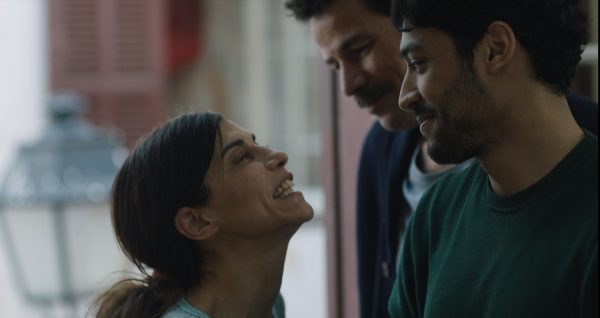
Perhaps the biggest question I have about this film is, “Why hasn’t it received more recognition than it has?” This positively beautiful picture – winner of the Un Certain Regard FIPRESCI Prize at the 2022 Cannes Film Festival and the Silver Hugo Award for best director at the 2022 Chicago Film Festival – should have received far wider attention than it did in this year’s recently completed awards season, including the Oscars. Writer-director Maryam Touzani’s second feature outing presents viewers with a gorgeously filmed, sensitively told story that succeeds on so many levels that it’s difficult to list them all. The picture’s superbly nuanced screenplay, beautiful background score, stunning costuming and exquisite cinematography, to name just a few aspects, combine to make for one of the best films I’ve seen in years. It also brilliantly evokes a variety of moods, from romantic to loving to sensual to erotic, all without ever becoming obvious, excessive or tawdry (though don’t be surprised if it opens up the water works at times, so keep the hankies within reach). Then there are the stellar performances of the three principals, all masterfully handled by Azabal, Bakri and newcomer Missioui.
Indeed, how this Cannes Film Festival Palme d’Or nominee got so egregiously overlooked truly escapes me, and I sincerely wish it had been released in time for me to include it on my list of the year’s best releases. It should have rightfully claimed nominations for best foreign language/international film in a number of competitions, given its far superior attributes compared to many of the underwhelming releases that somehow managed to land awards or nominations. It’s rare these days when a film has just about everything going for it, but “The Blue Caftan” certainly succeeds at this and is definitely well worth the viewing time. The film may be a little difficult to find at the moment, having played primarily at festivals and in an all-too-brief theatrical release, but one can hope that it will become more widely available for streaming online and on home media in the near future.
Copyright © 2023, by Brent Marchant. All rights reserved.



